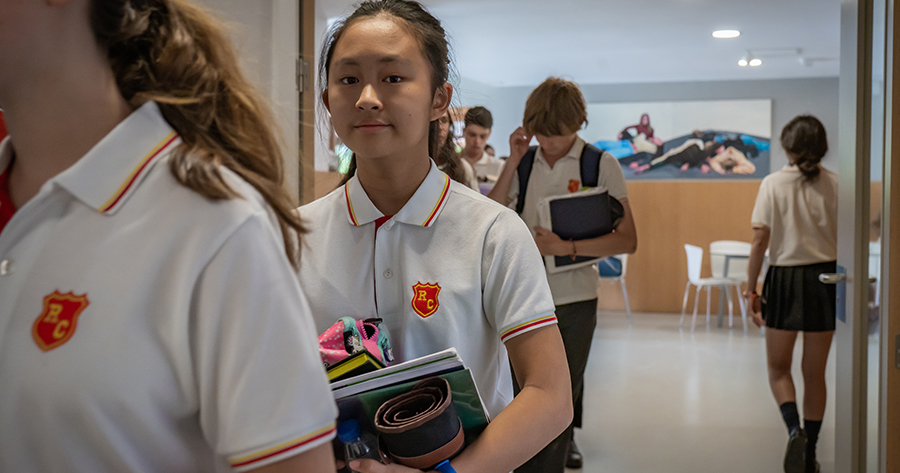Headmaster’s
Welcome
Welcome
It is both a privilege and a pleasure to welcome you to Runnymede College, Madrid’s oldest British international school, founded in 1967. For more than half a century, Runnymede has upheld the highest standards of academic excellence, intellectual rigour, and moral integrity, establishing itself as a school of distinction in Spain and abroad.
The school was established in the spirit of liberal humanism, which has always guided our educational philosophy. We believe in the inherent dignity of the individual, in the pursuit of truth through reason and inquiry, and in the formation of character alongside intellect. Equally, Runnymede has been built upon the supreme importance of family values. Our community thrives because of the close partnership between school and home, ensuring that pupils grow within an atmosphere of trust, support, and respect.
Uniquely among the major British international schools in Spain, Runnymede remains proudly independent, not owned by a private group or investor. This independence allows us to remain wholly focused on the education and wellbeing of our pupils, free from the commercial pressures that can so easily compromise educational values. Decisions are guided by what is best for our students, their families, and our staff—not by shareholders or external interests.
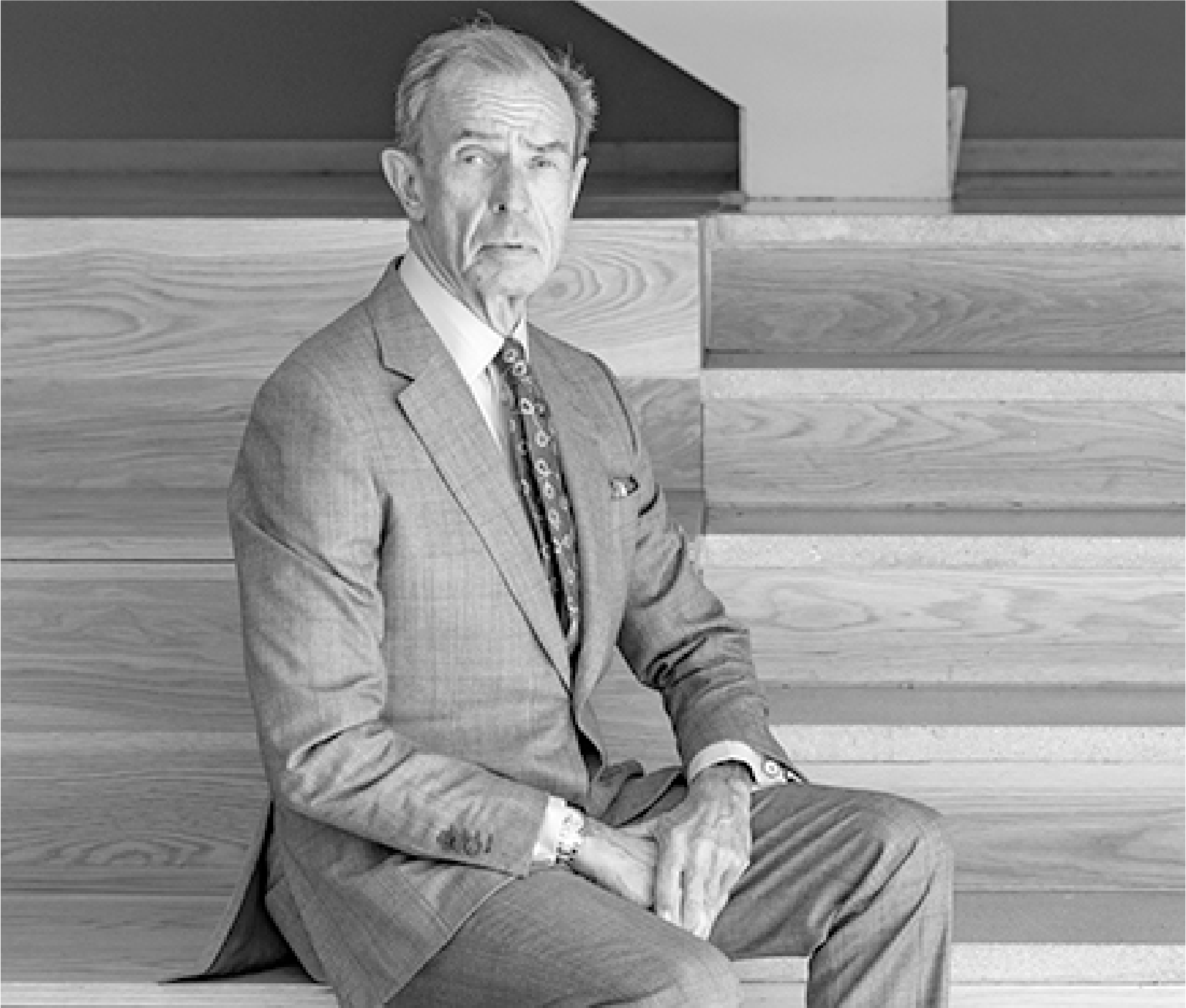
The strength of our reputation rests not only on the exceptional achievements of our Sixth Form leavers, who each year gain places at Oxford, Cambridge, Russell Group universities in the United Kingdom and the Ivy League in the United States, but also on the firm foundations laid much earlier in our Pre-Prep and Prep Schools. From their earliest days, pupils are nurtured within a stimulating and caring environment, where they develop curiosity, confidence, and a love of learning. These qualities, cultivated from the start, enable them to flourish as they progress through the Senior School and beyond.
We are proud of our ongoing investment in facilities, ensuring that our pupils benefit from a well-resourced, inspiring learning environment. However, we are equally clear that buildings alone do not make a great school. At Runnymede, the key to educational excellence lies in the quality of our staff. We are fortunate to count among our greatest strengths a team of highly qualified, experienced, and deeply committed teachers who bring learning to life, challenge and support our pupils, and model the values we seek to instil.
Education at Runnymede extends beyond the classroom. Music, drama, and sport all play an integral role in school life, broadening horizons and fostering resilience, teamwork, and leadership. Our pupils take great pride in representing the College, and our teams have enjoyed notable successes in inter-school competitions across Madrid, reflecting both their skill and their spirit.
Our aim has always been to provide a first-class British education within an international setting, enabling pupils not only to excel academically but also to grow in integrity, responsibility, and respect for others. We strive to nurture both intellectual curiosity and a sense of duty, service, and moral purpose.
I invite you to explore our website and discover more about the traditions, values, and opportunities that define Runnymede College.
We look forward to welcoming you and your family into our distinguished community.
Warm regards,
Frank M Powell, BSc (Econ.) (Hons.), PGCE
The School Today
Runnymede College is a leading private non-denominational British school in Spain offering a British education to boys and girls of all nationalities from the age of two to eighteen. The School regards its task as being to provide its pupils an academically excellent, all-round liberal humanistic education and the necessary basis to succeed in the adult world, and above all, to help them to acquire a moral sense as members of the international, world-wide community.
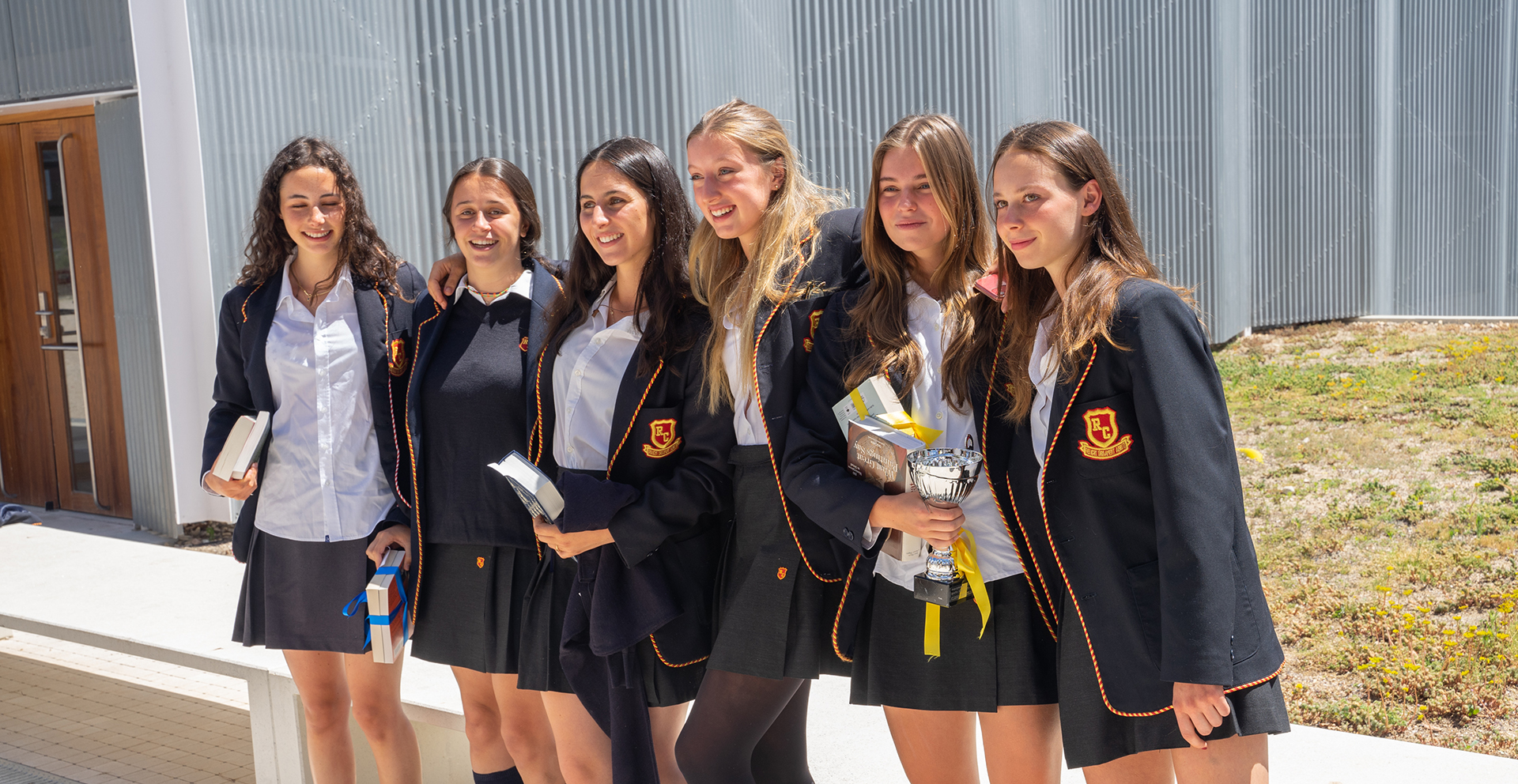
DISCOVER MORE ABOUT THE SCHOOL
Ethos & Aims
ETHOS
Runnymede is committed to academic excellence and sets the highest standards of behaviour and social conduct, fostering the development of mutual respect and responsibility. Above all we want our children to develop a love of learning and to become independent learners.
Fair play is also encouraged – learning to win without gloating and to lose with good grace, to accept the decision of the appropriate authority, be that of the referee in sport or the teacher in class, and to derive satisfaction from having done one’s best even when others have done better.
Teachers are encouraged to stimulate thinking and discussion about absolutely any subject, always bearing in mind the sensitivity of youth but without indoctrinating children in their personal attitudes.
Runnymede’s Values provides a framework within which pupils and all members of the School community can work together to achieve our common aims. The Values defines what we expect from every pupil and aim to promote a sense of pride and belonging to the School.
A necessary background to our rich variety of activity is discipline, conceived as respect for oneself, for others and for the School. We believe that children flourish best when their personal, social and emotional needs are met and where there are clear, developmentally appropriate expectations for their behaviour. Pupils are rewarded for effort, behaviour and achievement and sanctioned in cases of misbehaviour pursuant to the terms of the applicable Discipline System implemented in the Pre-Prep, Prep, and Senior Schools.
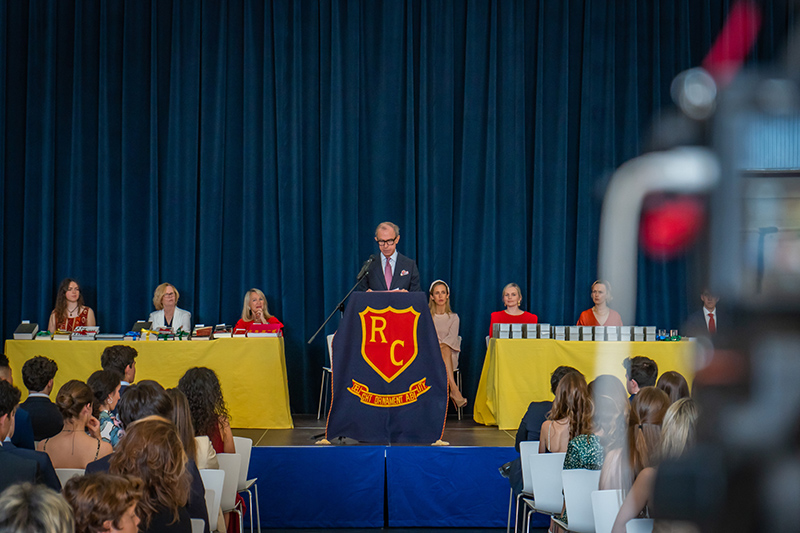
AIMS

To provide an all-round academic, humanistic education to all pupils regardless of their sex, race, religion or nationality.

To help children to maximise their potential, whether intellectual, artistic or physical.

To encourage positive social attitudes and respect and consideration for others, of all ages and backgrounds.

To create the conditions of a happy atmosphere and structured environment where children feel secure, through reasonable discipline and School rules known to all.

To educate pupils in preparation for adult life and to orient them towards pursuing the most suitable higher education course and professional career.

The Founder
Runnymede College was founded by Arthur F Powell and his wife Julia in 1967.
Arthur Powell became Founder Chairman of the National Association of British Schools in Spain in 1978, from which organisation he resigned in October 1991. Mr Powell and his wife Julia managed the School until their retirement in 1998. In recognition for his services to the community, in the New Year’s Honours List on December 31st, 1993, Arthur F Powell was created an Officer of the Order of the British Empire.
Mr Powell died on January 26th, 2009.
Prior to founding Runnymede College Mr Powell volunteered for the Royal Air Force (RAF) and the Royal Navy’s Fleet Air Arm during World War Ⅱ. He then moved on to study Russian at the School of Slavonic and East European Studies, London University and economics at the London School of Economics. After graduating Mr Powell went on to teach English at an academy in Madrid where he met his wife Julia and discovered his passion for education. This eventually led him to Italy where he became assistant director of studies at the British Council in Milan and a lecturer in English at the Universitá Cattolica del Sacro Cuore where he revolutionised the teaching of English at that university by teaching English in English instead of in Italian and published a series of textbooks and a manual of linguistic pedagogy for Italian teachers.
He also won a national competition for the contract to teach English on Radiotelevisione Italiana (RAI). He and Julia returned to Madrid in the 1960s, and Arthur went back to the Instituto Garrett y Powell where he prepared candidates for the Spanish diplomatic corps and for the Ministry of Commerce entrance examination.

Arthur Powell
Since 1967
The first Runnymede College was established in a red house in Calle José Rodríguez Pinilla 13. Whilst the dining room and bedrooms were classrooms, there was a sumptuous wooden-panelled drawing room which did service as a music-room, place of assembly and library, but was a shocking waste of space. There was also a swimming pool, but as it had no filter it served mainly as a source of supply of insects and the like for the science teachers, who had to try to use the garage as a make-do laboratory.
There were 40 pupils in the first year from various countries and a total of four full time teachers. The number of pupils rose to 70 in 1968 and by the summer of 1969 the house at José Rodríguez Pinilla was too small and impracticable. After frantic searching, Arthur found rented premises at Calle Arga 13 in the quiet residential area of El Viso at the top end of Calle Serrano, and Runnymede 2 opened in the September. The number of pupils grew fast as did the size of Runnymede’s different premises. In 1987, Mr Powell’s son (Frank) and his wife Cristina had founded the Junior School and, since then, have been co-responsible for the School’s expansion, for maintaining Runnymede’s academic excellence and for fostering the alumni pursuit of higher-level education. Runnymede is now based in Calle Salvia, La Moraleja and has 1090 pupils.
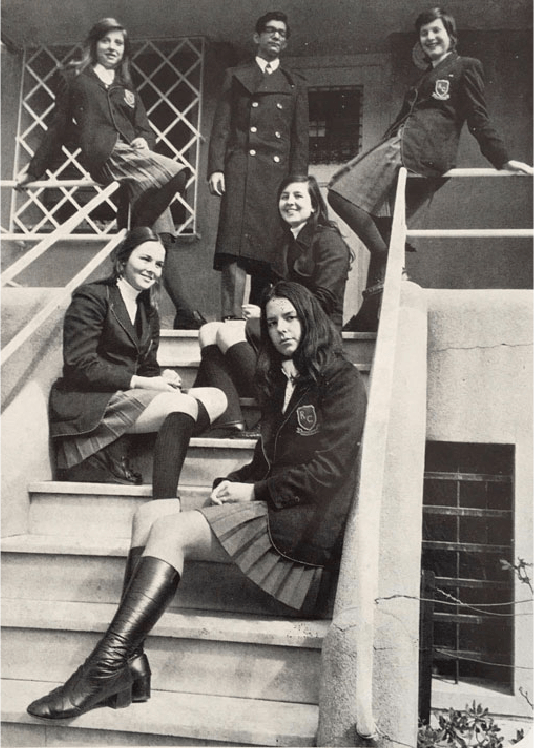
Students at the front door of the first Runnymede College house.
Why call it
Runnymede?
The choice of name very much reflected Arthur’s belief in the secular liberal English tradition. He was not really thinking of a soggy meadow, or about King John and his barons, but the spirit of the Magna Carta and, in particular, “the inherent dignity and the equal and inalienable rights of all members of the human family” mentioned by the UN Declaration of Human Rights.
More specifically, he had in mind Article 1 of that document, which solemnly states that everyone is entitled to those rights “without distinction of any kind, such as race, colour, sex, language, religion, political or other opinion, national or social origin, property, birth or other status.” In the words of Rudyard Kipling (1865-1936): “At Runnymede, at Runnymede/Your rights were won at Runnymede.
The School’s name, its motto (“Delight, Ornament, Ability”, emblazoned on the Runnymede badge), taken from Of Studies, a well known essay by Francis Bacon (1561-1616), and Arthur’s decision to divide students into three competing houses – Newton, Locke and Arthur’s favourite Keynes, after, respectively the physicist and mathematician Sir Isaac Newton (1642-1726), the philosopher and physician John Locke (1632-1704) and the economist John Maynard Keynes (1883-1946) – were a declaration of principles.
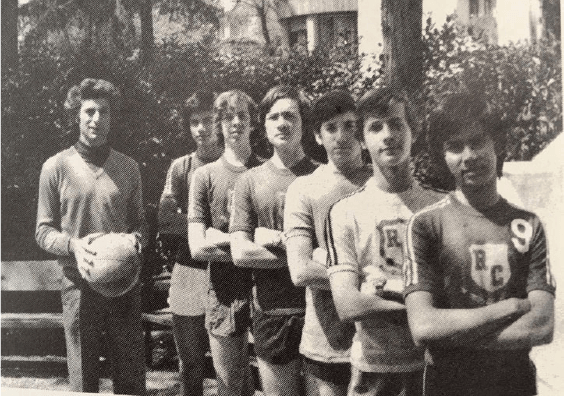
Runnymede at Calle Rodriguez Pinilla 13
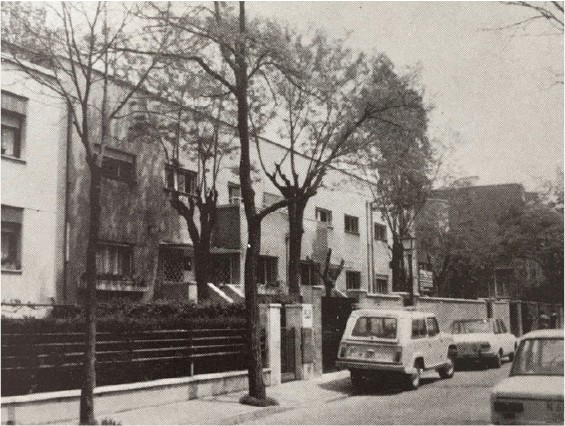
Runnymede at Calle Rodriguez Pinilla 13
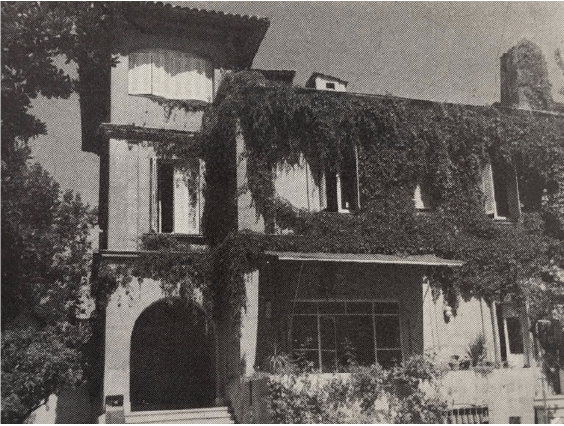
Runnymede at Calle Rodriguez Pinilla 13



